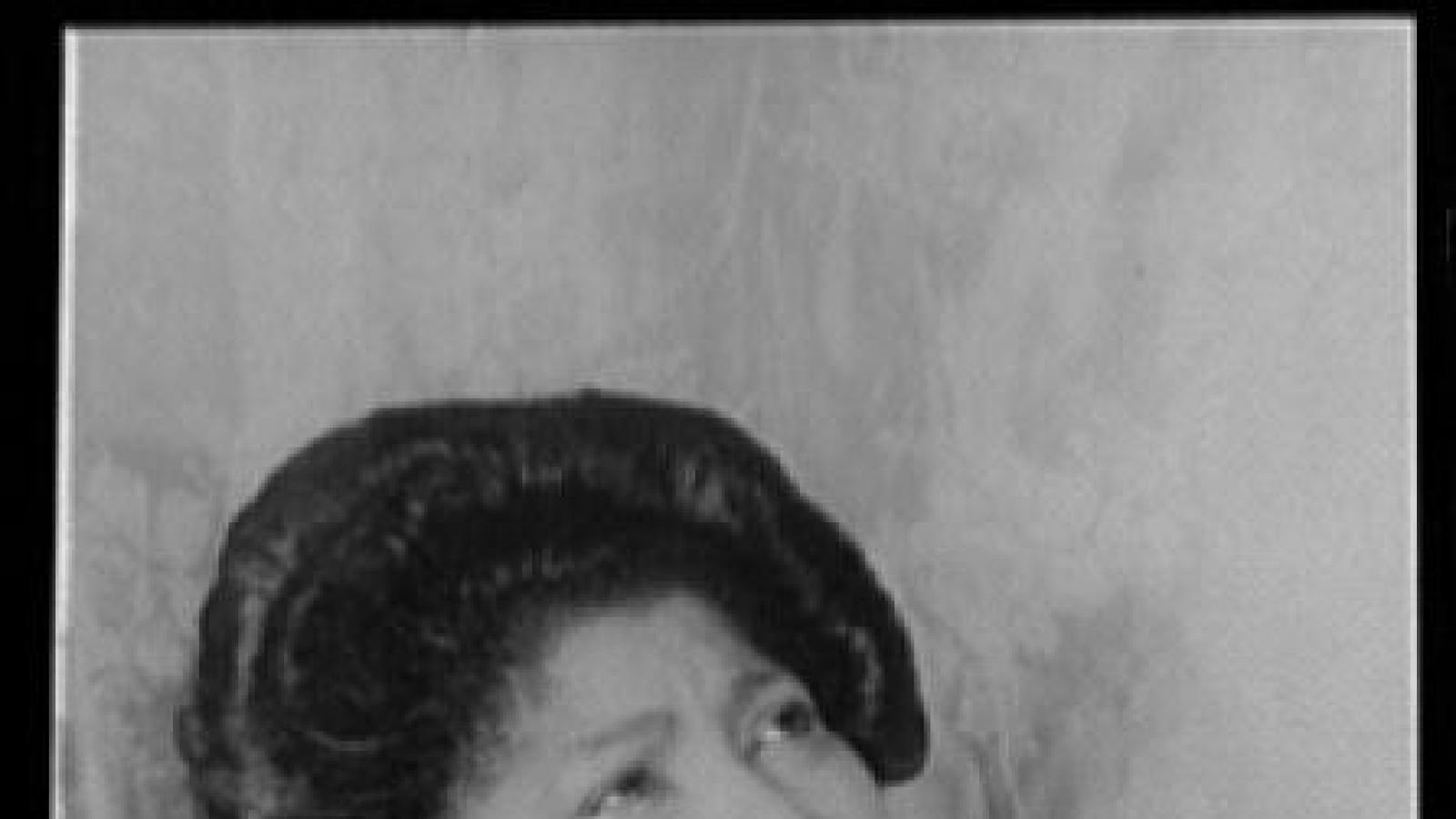Today marks what would have been Mahalia Jackson’s 105th birthday, so we thought we’d celebrate the Queen of Gospel’s remarkable life with a short tribute.
Born in New Orleans, the third of six children, she attended church regularly with her aunt, where she was exposed to what she described as the “real sweet” singing of Baptist congregants. She left school in eighth grade to work as a cook and washerwoman before moving to Chicago in 1927, where she also worked as a domestic before gaining recognition at the Greater Salem Baptist Church for her singing. She was promoted from church chorus to soloist, and began performing around the city. This eventually flourished into a career of national and international touring, film roles, televised concerts, and performances at historic events such as President Kennedy’s inauguration.
And yet, despite her fame, talent, and wealth, she still couldn’t sit where she liked in the South, and faced heavy discrimination when attempting to buy a house in Chicago. She turned, as always, to music.
Jackson frequently said that, “Gospel songs are the songs of hope. When you sing gospel, you have the feeling there is a cure for what’s wrong.” In a 1963 interview with Studs Terkel, she noted how easy it might be to grow hateful when hearing black men called “boy,” or when white counterparts could fawn all over her one minute then still deny her a soda at a lunch counter. But singing it out, she said, let her “be free.” “If it stays in my soul, my God, I’d become a hateful woman. And I don’t want to hate. I want to love.”
She inspired hope in millions of others as well through her civil rights activism—she has frequently been called the voice of the movement. She became a close associate of Dr. Martin Luther King’s, and performed a concert in Montgomery at his request during the 1956 bus boycott. She also famously sang “I’ve Been ‘Buked, and I’ve Been Scorned” immediately before Dr. King delivered his famous “I Have A Dream” speech in Washington. In fact, Jackson is considered partially responsible for the most celebrated part of the speech. Although he had included versions of the “dream” segment in previous speeches and sermons, it wasn’t part of his prepared script for the March on Washington for Jobs and Freedom. But according to witnesses, Jackson, who was standing near King on the dais, shouted “Tell him about the dream, Martin!” He then went off-script, and delivered the lines we all know today.
To learn more about Mahalia Jackson's influences, read our biography of NEA National Heritage Fellow Willie Mae Ford Smith, who helped shaped the singer's signature sound.

